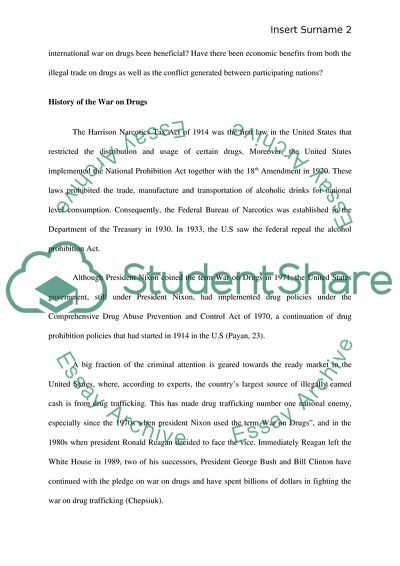Cite this document
(“International War on Drugs Research Paper Example | Topics and Well Written Essays - 2500 words”, n.d.)
International War on Drugs Research Paper Example | Topics and Well Written Essays - 2500 words. Retrieved from https://studentshare.org/history/1772482-what-have-we-seen-benefit-from-the-international-war-on-drugs
International War on Drugs Research Paper Example | Topics and Well Written Essays - 2500 words. Retrieved from https://studentshare.org/history/1772482-what-have-we-seen-benefit-from-the-international-war-on-drugs
(International War on Drugs Research Paper Example | Topics and Well Written Essays - 2500 Words)
International War on Drugs Research Paper Example | Topics and Well Written Essays - 2500 Words. https://studentshare.org/history/1772482-what-have-we-seen-benefit-from-the-international-war-on-drugs.
International War on Drugs Research Paper Example | Topics and Well Written Essays - 2500 Words. https://studentshare.org/history/1772482-what-have-we-seen-benefit-from-the-international-war-on-drugs.
“International War on Drugs Research Paper Example | Topics and Well Written Essays - 2500 Words”, n.d. https://studentshare.org/history/1772482-what-have-we-seen-benefit-from-the-international-war-on-drugs.


